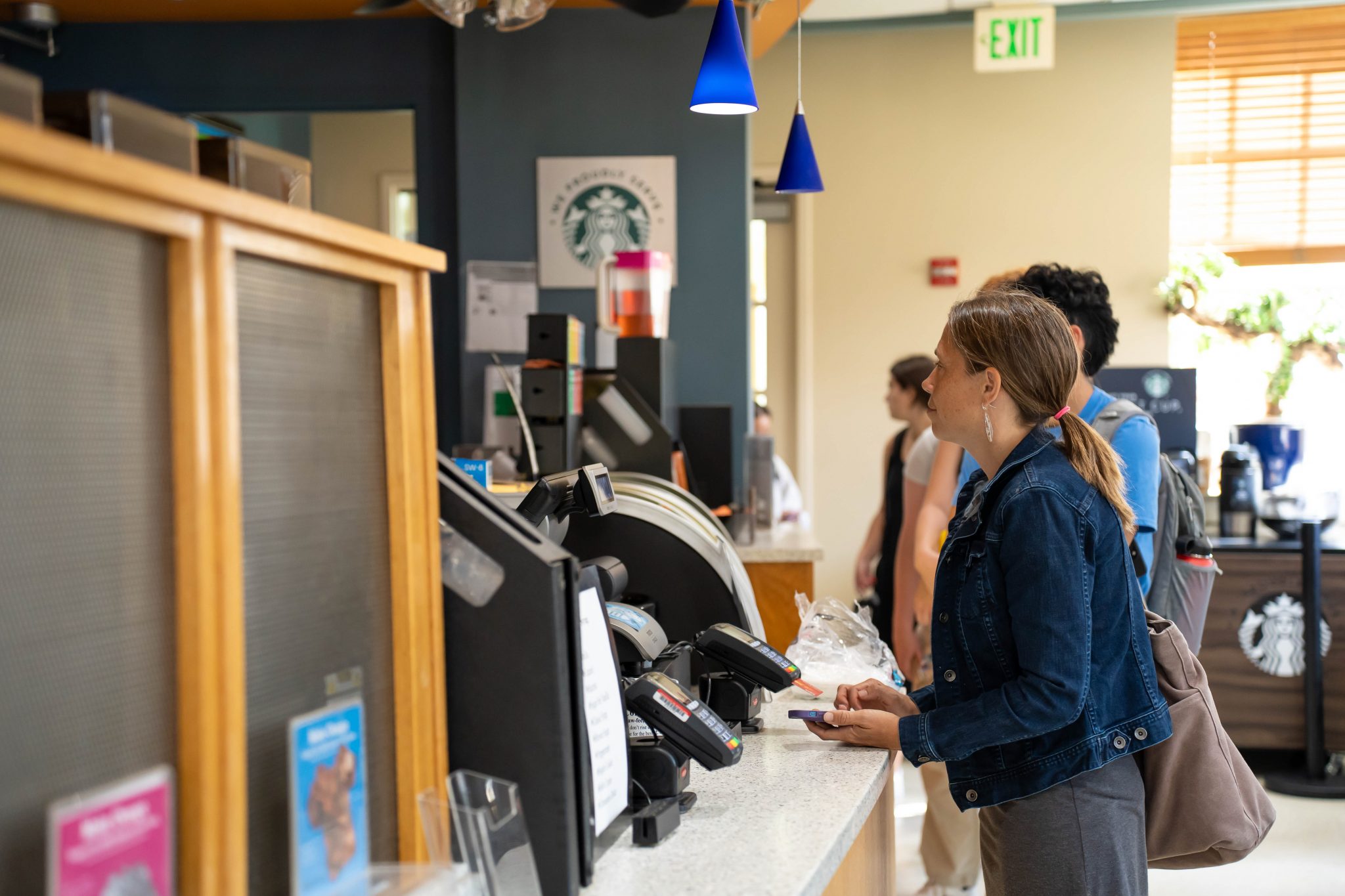Views expressed in opinion columns are the author’s own.
McKeldin Library’s cafe, Footnotes, has certainly been the most detrimental place for my wallet on campus. My freshman year, it was rare to see me without a strawberry açaí lemonade or a vanilla latte from Footnotes.
Many other coffee-addicted students were also drained by our on-campus cafes, as both Footnotes and the Food for Thought Cafe in ESJ made more than $400,000 in 2022. It’s no secret that nearly every cafe on campus sells Starbucks coffee. As students, the money we spend on campus has power, so it is important that we are conscious about what we are spending it on.
And with our collective Starbucks addiction, we may be misplacing that power. Against federal law, Starbucks recently employed union busting tactics such as giving pay hikes and benefits to only non-union workers. The company has also been charged with more than 200 National Labor Relations Act violations.
The company has even been accused of sourcing their coffee beans from plantations that utilized slave labor — despite the fact that Starbucks certifies that all of its suppliers uphold ethical coffee growing standards.
The University of Maryland needs to stop selling coffee from places that do not reflect campus values, and replace it with cafes that do.
Smaller businesses such as Casey’s Coffee, located under the Domain College Park, would be strong candidates to take over Starbucks’ on-campus coffee monopoly. Personally, I believe Casey’s Coffee offers better quality drinks for cheaper prices. It’s so good that I didn’t even go to Starbucks last semester.
And yet, last year Starbucks made $35 billion — a figure local cafe owners couldn’t dream of.
The university could allow a high-quality small business to flourish by switching out Starbucks coffee for Casey’s Coffee in some or all of our popular campus cafes. This would give students a new variety of drinks to try and allow us to put money toward our community.
Amid the Campus Village Shoppes closures, many locally-owned businesses were decimated. With many people’s livelihoods destroyed, small businesses in College Park need a powerful ally. This university could step up to the task.
Another option is to put the power right into students’ hands like what the University of North Carolina at Chapel Hill has already done. Their prime coffee supplier, Meantime Coffee, is a student created, owned and run nonprofit organization. After paying all the student workers liveable wages, the rest of the profits go toward student life initiatives or charity.
A similar practice at the University of Maryland could completely revitalize campus cafes. Allowing students to form and run their own coffee and drink businesses would create more on-campus jobs. It would also allow those who are planning to enter the marketing and entrepreneurship fields to gain valuable experience running a coffee shop.
Further, with our university’s loss of COVID-19 relief funding, clubs are struggling to pick up the financial slack. Thus, if students were to control the profits, the cafe could be a valuable way to keep our clubs going.
This university claims to value equity. But it’s hard to take that claim seriously when they work with Starbucks — a company that totally disregards equity in its harvesting practices.
Our campus could be an example for others and Maryland universities such as University of Maryland, Baltimore County, and Salisbury University, to stop serving Starbucks.
And, if students are still craving their Starbucks fix, they need to look no farther than Route 1. Located a few steps away from south campus, those who have favorite drinks from the store won’t have to go without.
Overall, we need a change in how we buy from our campus cafes. It’s time the university starts supporting small businesses and stops cosigning multi-billion dollar companies’ shady business practices on campus. As students, our money is important, and we deserve better than Starbucks from our university.
Isabella Cusack is a sophomore English and Public Policy major. She can be reached at icusack@umd.edu



